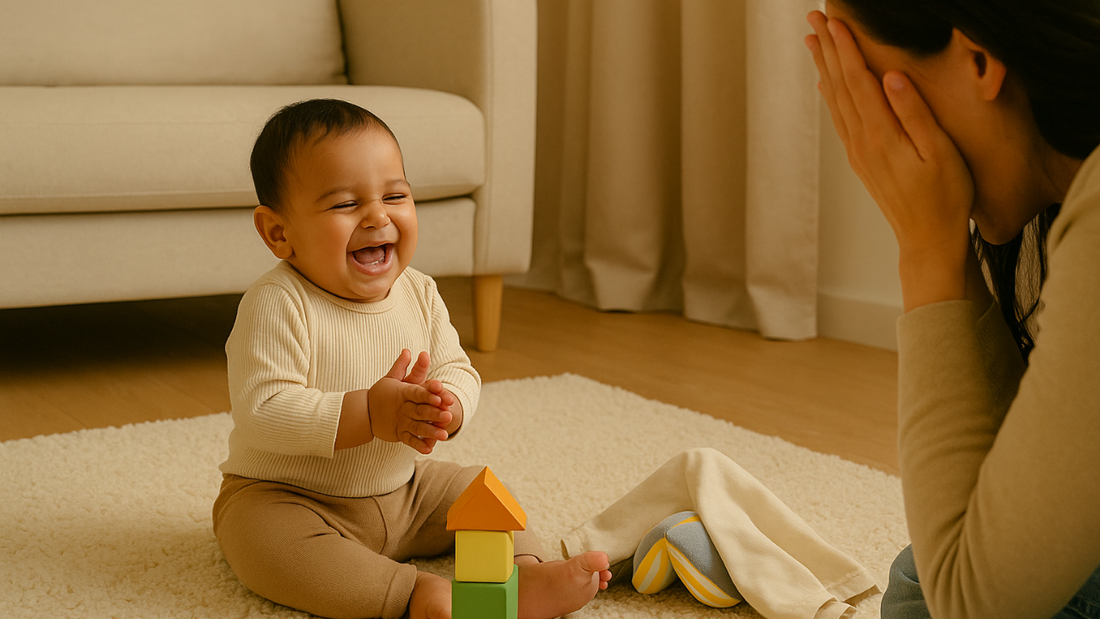
Peek-a-Boo Games: Showing Babies That Things Are Still There
LiLLBUDOne of the most magical things about being a new parent is seeing your baby's mind grow. Every milestone, from cooing to crawling, gives you a little glimpse into how they start to make sense of the world. One of these milestones is the interesting idea of object permanence, which is the idea that things still exist even when you can't see them. One of the easiest and most fun ways to explain this idea is through the classic game of peek-a-boo.
Why Object Permanence Is Important
Babies only live in the moment for the first few months. They think a toy or even a parent is gone if they can't see it. This is why they cry when you leave the room or laugh in shock when you suddenly "reappear."
Babies start to understand that things don't disappear when they are around 6 to 9 months old. Knowing that things and people are still there even when you can't see them makes them feel safer and more sure of themselves. Peek-a-boo and other games like it help kids get better at this skill while having fun.
Try these simple Peek-a-Boo games:
- Classic Peek-a-Boo: Put your hands over your face and then show it off with a big smile. Babies love the surprise and quickly learn that you will come back even when you leave.
- A cloth-covered peek-a-boo: Place a blanket, napkin, or scarf on your head and then remove it. You can also hide a favorite toy and have your baby uncover it.
- Under the Cup Toy: Place a small toy underneath a cup and have your baby pick it up to reveal what is under it. This introduces a puzzle element that keeps them engaged.
- Peek-a-Boo Not far away: Partially hide behind a door or wall, then come out. This not only teaches babies that things don't disappear, but it also makes them want to move closer.
Benefits Beyond The Game
- Peek-a-boo may look easy, but it has a lot of benefits for kids' development: Helps with separation anxiety since babies will learn that you will return even when you depart.
- Improves social skills: Laughing together, eye contact, and anticipation of something all assist people in bonding.
- Encourages Problem-Solving: Babies learn to think and recall things as they search for hidden objects.
- Language Development: Include words such as "Where's Mama?" or "Here I am!" to assist children with learning new words early.
Other Fun Changes
- Sound Peek-a-Boo: Say your baby's name and then hide, allowing them to locate you by sound.
- Photo Peek-a-Boo: Place a family photo under a sheet of paper or in a book and allow your baby to discover it.
- For older babies and toddlers, play peek-a-boo outside behind trees or on playground equipment.
In conclusion, peek-a-boo isn't just a silly game; it's a way for babies to learn one of the first and most important things: that the world around them is always the same, even when they can't see it. Your baby is learning to trust, remember, and explore with every laugh and look of surprise.
So the next time you cover your face or hide a toy, remember that you're not just having fun with your child; you're also helping them understand how amazing life is.

